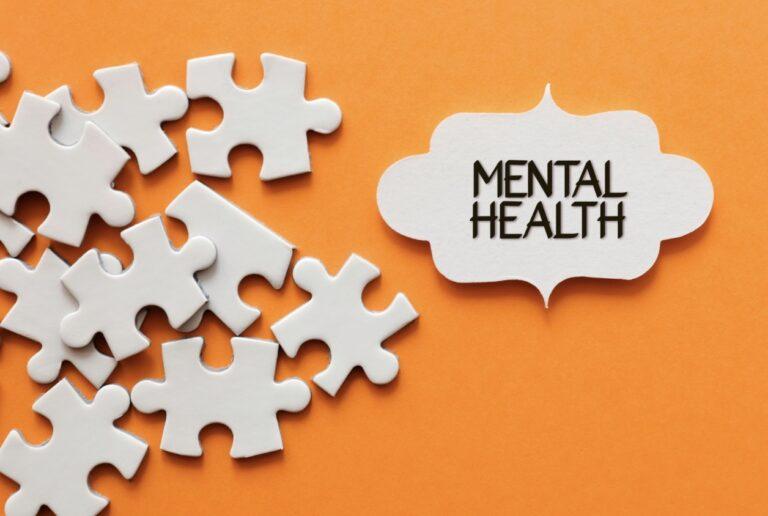

September 15, 2025 (Current Version)
March 28, 2025
Are you struggling with your mental health this winter? Even when surrounded by festive cheer and twinkling lights, winter can be difficult and stressful. The winter blues also known as seasonal affective disorder is common as the weather gets colder and the nights draw in. Let’s look at ten top tips to improve your mental wellbeing this winter.
📝 What is seasonal affective disorder?
According to NHS figures from 2023, 3% of the population have a diagnosis of Seasonal Affective Disorder, affecting people in the autumn and winter months. During the colder months, the darker, shorter days can reduce energy levels and the motivation to get out, which leads to symptoms of depression such as:
- Low mood
- Irritability
- Tearfulness
- A loss of pleasure in everyday activities
- Reduced libido
During winter the number of hours of sunlight falls significantly and we experience a fall in vitamin D levels. Vitamin D is known as the “sunshine vitamin” because our bodies produce it in response to sun exposure. It helps our bodies to produce the neurotransmitter serotonin, which influences our mood. Vitamin D is also key to the production of melatonin, the hormone responsible for regulating sleep. It also plays a role in supporting immune function and reducing the risk of infections. Therefore when there is a dip in vitamin D during this time of year, people find it challenging and may experience low mood, sleep disruption and winter depression.
Vitamin D supplementation can be taken, but levels need to be checked first. Have your levels checked by a healthcare provider, to make sure you get the right dosage.
🏃♂️ Focus on physical health
Regular exercise has been proven to have a positive impact on mood, mental alertness and a reduction of stress. Aim for at least 30 minutes of activity most days of the week, ideally outdoors if possible. It promotes feelings of well-being and it may be as effective as antidepressant medications for mild to moderate mental health disorders. It’s thought that physical activity helps with mental health by:
- Changing your brain chemistry – getting your heart pumping releases a range of neurochemicals like endorphins and serotonin
- Improved blood flow to your brain – this increases how much oxygen your brain receives, and in turn, helps to improve your mood and thinking
- Reducing stress – exercise is thought to dampen activity in regions of your brain that are activated by stress, like your amygdala
- Helping you sleep better – exercise can help with any sleep problems you have, which also has benefits for your mental health
- Increasing your energy levels – which are often reduced if your mental health is suffering
- Giving you a focus and a sense of achievement – exercise can distract you from your problems and help provide you with goals and a sense of achievement. It can also improve your self-esteem
🍽️ Eat well
Energy, mood and brain function can be affected if you don’t eat enough healthy, nutrient-rich foods as your body lacks vital vitamins and minerals that help your body function smoothly.
Consuming sugary or fatty food, such as sweets, chocolate, takeaways and crisps, doesn’t make your body feel good and can cause mood swings, low mood and, in some cases, confusion. Not eating regularly can make your blood sugars drop, resulting in tiredness and irritability.
Eating a diet rich in the following vitamins and minerals will benefit you greatly during the cold weather:
- Iron – lack of iron makes us weak, tired and lethargic all the time. Foods such as red meat, dark green leafy vegetables, pulses and beans, eggs and dried fruit, such as dried apricots, prunes and raisins are good sources to add to your diet
- Vitamin B – lack of B vitamins can cause fatigue, palpitations, depression and memory loss. Incorporating beef, pork, poultry, fish, milk and dairy products, such as cow’s milk, yoghurt, cheese and cream will boost your vitamin B levels
- Selenium – lack of selenium may increase feelings of depression therefore adding foods such as brazil nuts, meat, fish, seeds and wholemeal bread into your diet will help
📒 Keep a routine
With the change in weather to shorter, colder days over the winter months it is more important to stick to a regular routine. Having some things that are predictable in your life can create a sense of stability, reduce levels of stress, reduce cognitive load (because you don’t have to give as much thought to simple tasks) and help you feel more in control.
🌥️ Make the most of natural light
Getting outside in the fresh air and making the most of natural sunlight as much as possible will help regulate circadian rhythms. Circadian rhythm is regulated by our first exposure to light in the morning. It is the body’s natural clock that helps regulate sleep cycles, stimulate the brain to feel alert and help with mood. To increase brightness indoors you can even open blinds and curtains in your home, position your desk close to a window and use lamps and mirrors.
🧑🤝🧑 Connect with people
Having a support system and spending time with others can be greatly beneficial in reducing negative mental health symptoms. If you can’t see them in person schedule regular video chats with friends and family and reach out by phone or email. To make things fun during the festive season you can host a games or Christmas movie night. Search for book clubs, interest groups, support groups, or other communities to join in your local area. Engaging in social activities can help decrease the feeling of isolation and promote mental stimulation.
When you are finding life challenging it’s important to reach out to your support system and talk with those you trust. Be open and discuss your concerns and how you’re managing them. These interactions can help build up your emotional and mental resilience.
📖 Journalling
Incorporating journalling into your life, particularly during the winter months has many benefits. It is proven to reduce anxiety and stress levels. Many people find it cathartic as it can release your emotion onto the page, declutter the mind and offload thoughts without anyone’s opinions coming back at you is powerful. Also adding a gratitude journal to your daily routine encourages you to focus on the positive aspects of your life. Regularly noting down what you are thankful for contributes to increased overall wellbeing and mental health.
💭Reframing thoughts
When you are feeling the effects of low mood take a moment to reframe your thoughts to regulate yourself. Instead of dwelling on your thoughts recognise when intrusive thoughts take over and redirect them with an activity or with questioning such as am I making assumptions? Would I talk to a loved one like this? Call yourself out when this is happening. Am I being balanced about this thought? What information am I ignoring?
The thought – I don’t know what’s wrong with me. I can’t seem to focus on anything – can be turned into – Lack of focus can be a normal response to stress. I’m doing the best I can during this time.
The way you talk to yourself matters. Don’t believe everything you think.
💆 Self-care and relaxation
Taking time out to do things you enjoy and focus on yourself. Keep a running list of small things that make you feel good. Try starting your day with a podcast while getting ready each morning. Creating a playlist of short and longer motivational podcasts allows you to reduce time wasting. Pick podcast topics that allow you to drift away.
Most of us find music can instantly impact our mood. Create a playlist of music that makes you feel happy and listen to it when feeling low.
Try making your morning routine your most cherished ritual. Wake up 20 minutes earlier than you need to to fully enjoy your routine with no stress. Drinking your cup of tea or coffee at a leisurely pace will set up in a good frame of mind for the day.
💡Light therapy
This mimics natural light to regulate your circadian rhythms and improve your mood. It can also boost serotonin levels and regulate sleep-wake cycles. Use a lightbox with at least 10,000 lux for 20-30 minutes daily, ideally in the morning.
📱Digital detox
Unplug for a few hours or even a full day. A break from your phone and social media can help you reconnect with yourself and the world around you. You’ll feel your anxiety levels and mind calm after just a few hours.
📝 Final word
If you’re struggling with your mental health this winter there are lots of ways to support yourself or a loved one, ranging from self-care to talking therapies. If your symptoms persist, or if you’re finding it hard to manage or cope on your own, seek medical advice from a healthcare professional.
Sources
- Food and mood – British Dietetic Association (BDA)
- Seasonal affective disorder (SAD) – NHS inform
- Winter Wellness: Why the darker months affect your mood and what you can do to protect your mental health this winter: | Action Mental Health
- Looking after your mental health through the winter – Met Office
Medical Disclaimer
NowPatient has taken all reasonable steps to ensure that all material is factually accurate, complete, and current. However, the knowledge and experience of a qualified healthcare professional should always be sought after instead of using the information on this page. Before taking any drug, you should always speak to your doctor or another qualified healthcare provider.
The information provided here about medications is subject to change and is not meant to include all uses, precautions, warnings, directions, drug interactions, allergic reactions, or negative effects. The absence of warnings or other information for a particular medication does not imply that the medication or medication combination is appropriate for all patients or for all possible purposes.









